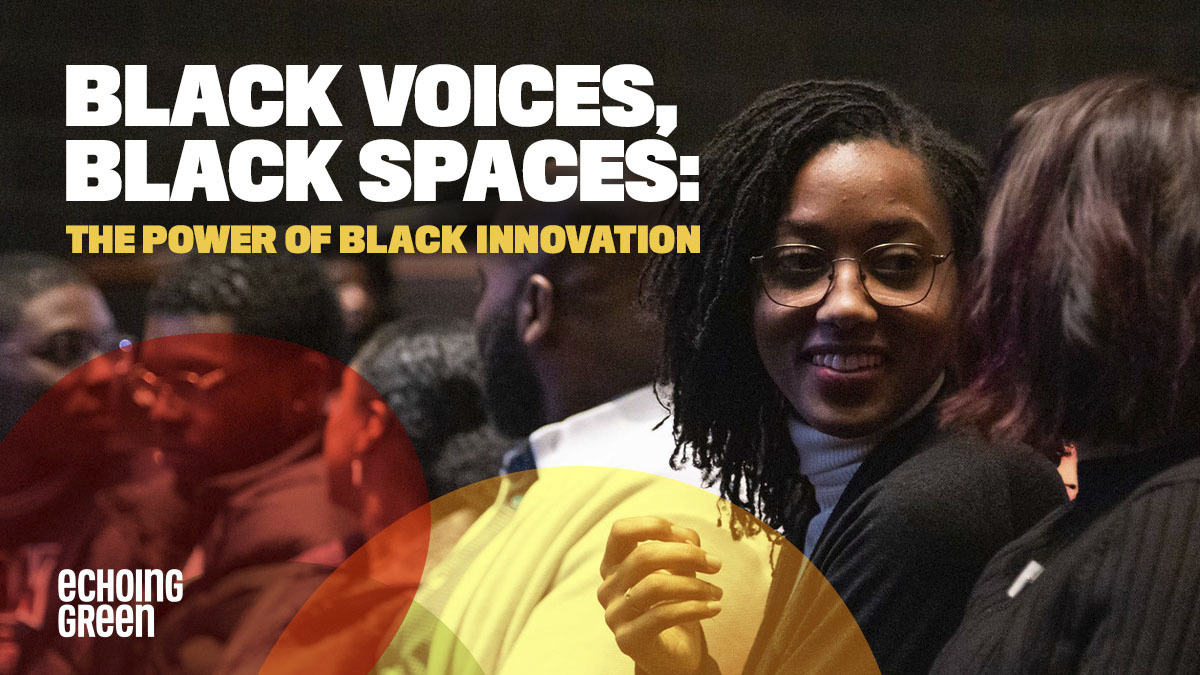Supporting social innovators and entrepreneurs to promote racial equity

In the United States, the racial wealth gap between white and Black families grew from about $100,000 in 1992 to $154,000 in 2016, with no growth of the median wealth of Black families during that time. Recent political and legal events have only increased these barriers. Similarly, in European countries, and in other regions around the globe, wealth and economic opportunity are unequally distributed with impacts on individuals, families, and entire economies. Social innovation involves creating transformative solutions to the biggest challenges of our time, often through entrepreneurship of proximate leaders closest to the issues.
Funding social innovation as essential to increasing global equity
As shown in Giving Gap’s State of Black Nonprofits Report: 2024, this disparity in wealth distribution impacts social enterprises owned and founded by Black and brown leaders, which receive disproportionately less funding than their white counterparts. Yet social innovators are often closest to the problems of inequity and are themselves directly invested in finding the solutions that will strengthen their communities and produce more just systems. Echoing Green believes businesses in all sectors would benefit from partnering with social innovators to center the expertise and experience that comes with proximity and foster transformative economic change.
Echoing Green is the leading talent spotter for social innovators, with over 35 years of experience finding emerging leaders with the best ideas for social innovation as early as possible and setting them on a path to lifelong impact. By finding, funding, and connecting Echoing Green Fellows, we’re magnifying the impact of nearly 1,000 social innovators around the globe.
Echoing Green’s research and work with social innovators demonstrates the business case for collaborating with social innovators and successful case studies showing how together they can drive increased equity for historically excluded groups.
As we identify social innovators who are often overlooked and underfunded, we’re using our influence in the field to change the trajectory of investment approaches and de-risk social innovation funding with the recent launch of Signal Fund.
Equity in funding through Signal Fund
Echoing Green has a long history of listening to innovators and implementing new funding methods based on what we hear. Signal Fund is another way for us to lean into our commitment to social innovators and disrupt outdated funding models.
The fund provides catalytic capital to social innovators at crucial growth stages. Just as philanthropy needs to trust their grantee partners’ decision-making abilities about how to solve problems, we must do the same with social innovators. Signal Fund helps to bridge the common funding gap between early-stage viability of a project and its expansion phase of growth.
Halfway through its two-year pilot phase, Signal Fund has raised $15.6 million and disbursed approximately $3.6 million to 12 Echoing Green Fellows who are already five to 10 years into the life of their enterprise. The fund is already demonstrating the value of shifting business practices to be driven by social innovators’ insights and has leveraged an additional $18 million for these organizations.
Signal Fund’s real-time impact on social innovators and entrepreneurs
For example, Laurin Leonard founded the nonprofit Mission Launch to improve the economic opportunities for individuals living with criminal records. After successfully delivering program and advocacy work, Laurin identified a gap in the strategies being deployed and launched R3Score, a technology company that provides an alternative background and credit check for employers, lenders, and others looking to engage those once convicted of a felony. Approached by multiple clients for potential contracts, R3Score needed patient capital to build the technical and operating capacity to pass diligence requirements for supplier onboarding. As a new company, neither traditional debt nor dilutive equity were appropriate. With Signal Fund, Laurin closed additional support from Conscious Venture Fund, Revolve Fund, and others. These investments positioned Laurin to hit key milestones leading to a subsequent raise of funds for the organization. R3Score is now a fully approved vendor for their main client and continues to earn new contracts.
Good Call Technologies is another example. Founder Jelani Anglin seeks to reduce mass incarceration and empower communities marginalized by the criminal justice system. As a nonprofit, Good Call has run a successful free, tech-enabled 24/7 hotline in New York City to connect residents with immediate legal help if they, or a loved one, are arrested. The organization is now developing a licensable CRM tech platform to expand its right-to-counsel impact to communities nationwide. A Signal Fund investment has allowed for additional funds to be raised and matched toward the development of a 2.0 version of the platform.
Philanthropy’s shift toward new ways of funding
Signal Fund demonstrates how philanthropists and investors can integrate innovator-driven frameworks into their everyday practices. This can change the way they approach inequity and racial injustice within their field. In the face of challenges to many social change endeavors, philanthropy can shift from business as usual to new ways of funding. This, in turn, can move our sector toward increasingly equitable practices.
Photo credit: LumiNola via Getty Images






